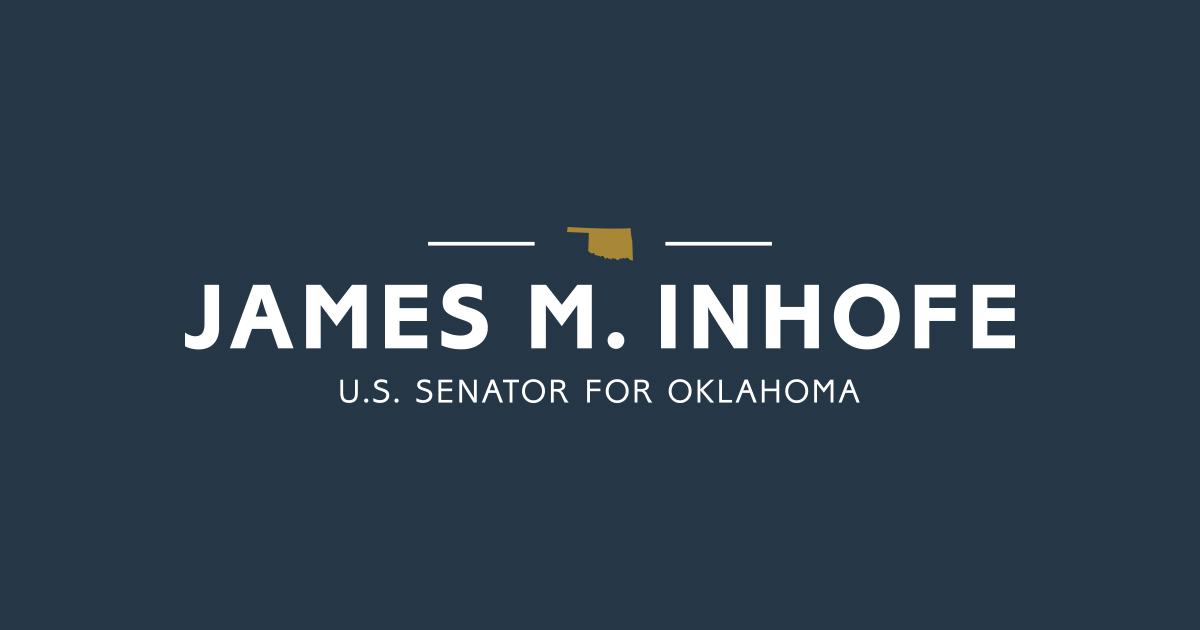Source: United States Senator for Oklahoma James Inhofe
Yesterday, U.S. Sen. Jim Inhofe (R-Okla.), senior member of the Environment and Public Works (EPW) Committee, questioned witnesses at a hearing to assess the Environmental Protection Agency’s ongoing and proposed responses to the presence of PFAS chemicals in our environment.
Witnesses included: the Honorable Radhika Fox, Assistant Administrator, Office of Water, U.S. Environmental Protection Agency.
Inhofe: I want to thank Senator Capito and everyone. Some are not aware that we have competing committees; it’s difficult to be in two places at once, but I want to thank you for the time we have spent together. We have talked about these things, and while there are differences in our philosophies and the various areas in the jurisdiction of this committee, you are a great one to listen to and be a part of and communicate with, and I look forward to continuing that.
Now, I appreciate the conversation we had yesterday, and it’s comforting to know that one issue that you are not looking – and I think it’s good to state this publicly – to punish anyone. As you know, my major concern, as pointed out by the chairman, I have a lot of activity in aviation. So it’s only natural that I get comments and questions from our commercial aviation community out there with this fear that they have with this material that can be used to suppress fires is something they may have a problem with because they want to be sure that the airport operators are not going to be held responsible for something over which they really have no control.
Now, we talked about that yesterday, and I am not sure what you can say that will give maximum comfort to this community; let’s give it a try.
Fox: Senator, first of all, it’s lovely to see you again. What I would say is that you pointed out an issue that really requires very strong interagency coordination. You know, if FAA or DOD are requiring that airports are utilizing this firefighter foam and it then causes contamination that they may be responsible for if PFAS are designated as a hazardous substance under CERCLA. It’s really our responsibilities as federal agencies to work together to kind of iron out those things. My understanding—we are working closely with FAA and DOD to first find alternatives to firefighting foam, safe alternatives, that don’t have PFAS. There is really great progress being made, so think the industry is going to be moving in that direction. That’s really and critically important, in part, because of the need for this type of interagency coordination of various policies. Brenda Mallory, the chair of White House council for environmental quality, just, on Monday launched an interagency council that has the deputy secretaries working together to resolve these kinds of things. I can assure you, Senator, we are not looking to punish airport operators if they are following direction and they are following guidance provided by FAA.
Inhofe: I understand that. Guidance is out there, but the problem is that it’s not done yet. And the problem is that a disaster could happen in the meantime. These people are out there not being able to answer the question as to what happens if we have a disaster. We have material that we are not able to use, so the problem is still a problem. I understand and you were very emphatic to me that you are personally involved in looking into it and trying to get the White House to do the same thing, but it’s not done yet. Now, have you thought about having some kind of an exemption put in place that could work? I almost have to carry something back to give some comfort to individuals who have expressed that concern.
Fox: So, we are very early in the rule development process for the CERCLA hazardous designation, and we anticipate proposing that rule in the spring of 2022, so in about six months or so. It’s going to be a robust process of both interagency review of the proposed rule as well as robust opportunity for public comment on the rule itself before we get to a final rule the following year. I can’t prejudge the outcome of the rule, Senator. It has to go through that regulatory process, but I hear you loud and clear on this concern. You have my commitment that I will take this concern back to the leadership in the Office of Land and Emergency Management who are leading the development of that proposed rule.
Inhofe: Alright, I will try to participate in a little area of comfort for these people and maybe calling up and asking you to reach into some other areas that might offer some type of temporary relief. I know my time is about to expire, but I did want to about that the EPA does not have plans to use the WOTUS regulatory process as an excuse to impose new regulatory burdens in the name of climate change. Now, we did talk to you about that, is there any comment you can make very briefly on that because that is a concern.
Carper: I ask you to be brief in your response, but you can answer more fully for the record. Go ahead.
Fox: Absolutely, and I am happy to answer more fully for the record, but the answer is no. We are not using the WOTUS rule in that way.
Inhofe: Thank you very much. One last question, very very brief though, Mr. Chairman, because I think I know what her answer is, can you confirm these important agricultural exemptions will be maintained?
Fox: I am happy to give an in-depth answer in the questions for the record on that as well.
Inhofe: I’ll live with that, thank you.
